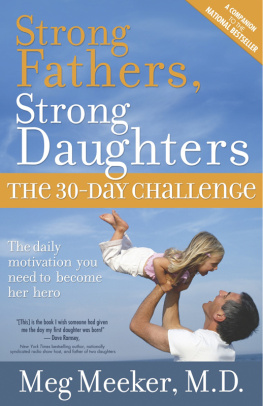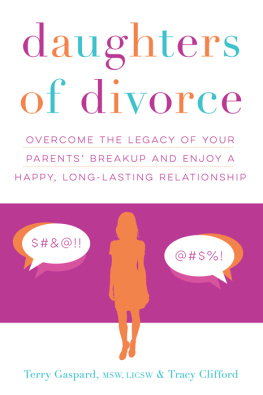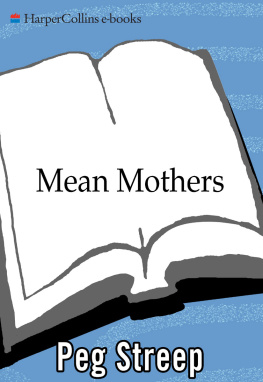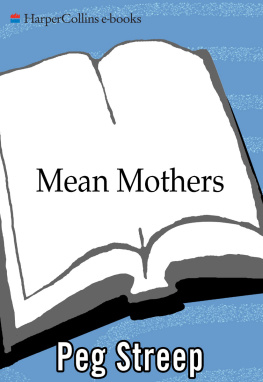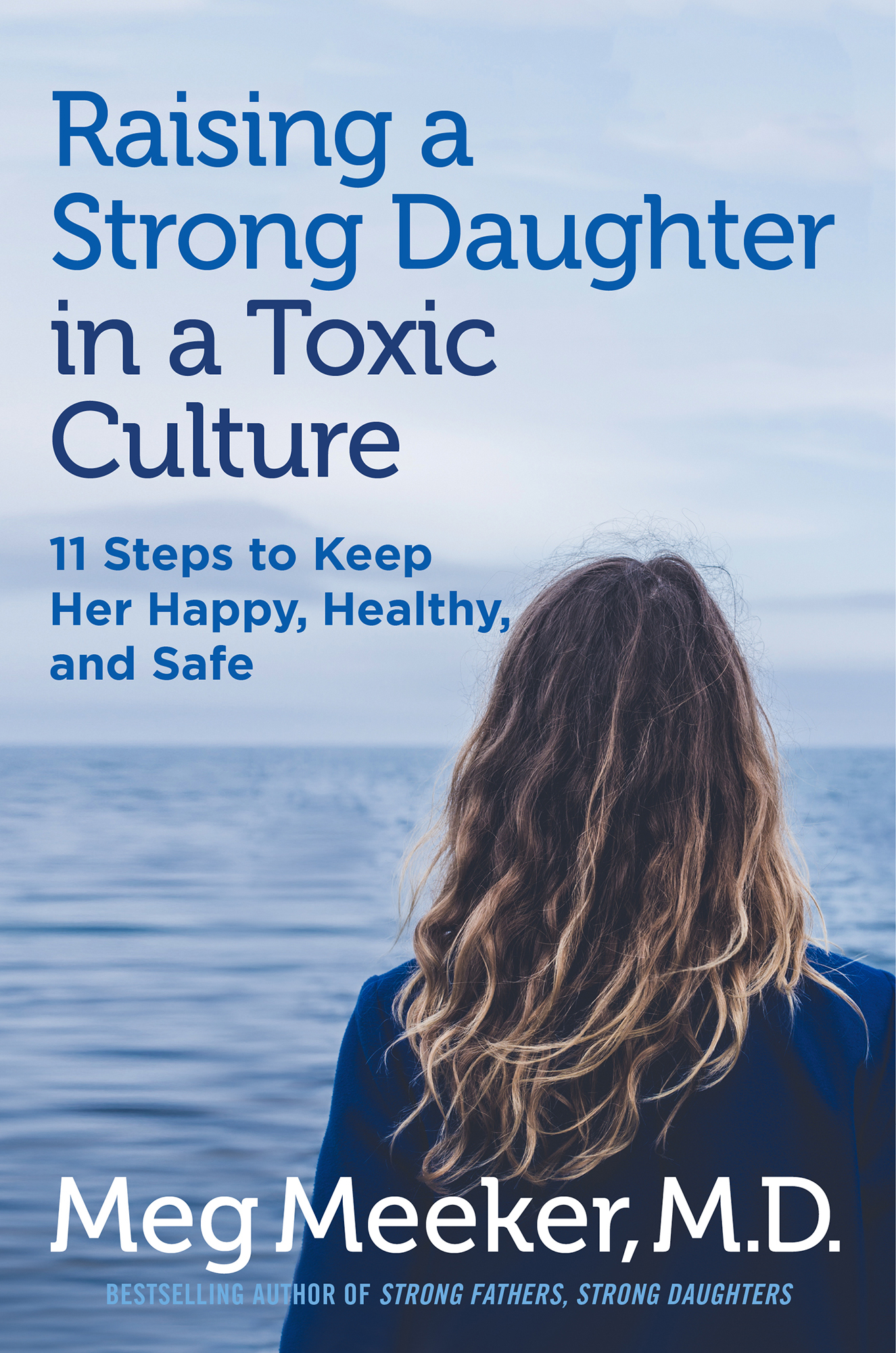Contents
Guide
PRAISE FOR
Raising a Strong Daughter in a Toxic Culture
If you have a daughteror two, like meyou need this book! Dr. Meg Meekers thirty years of being a pediatrician give her the understanding, compassion, and experience to help you build the healthy, loving relationship you both deserve.
Rachel Cruze, #1 New York Times bestselling author and host of The Rachel Cruze Show
Our culture is supposed to be all about empowering women, but really it is strewing our daughters paths with more pitfalls than any previous generation has had to navigatefrom life-threatening bad advice about early sexual activity, to an epidemic of depression (some of it driven by social media), to a near complete misunderstanding of what makes for a happy, productive life. Dr. Meg Meeker is a truth-teller, because she cares about kidsand she knows about kids. She knows how your daughter thinksmaybe even better than you doand she understands the challenges that parents face. If you want proven advice on how to be a better parent to your daughter, youll find it here.
Benjamin Watson, tight end for the Superbowl champion New England Patriots, father of seven children, and author of The New Dads Playbook: Gearing Up for the Biggest Game of Your Life
I devoured this book. I learned so much. As a family doctor, I plan to stealoops, I meant to say
sharemany of the pearls of wisdom I gained from this indispensable book. My recommendation to parents: Read this book. Now. Then read it again or listen to the audio. Get it in your bones. Then the next time you encounter a tough situation with your daughter, ask yourself, What would Dr. Meeker do? And do it.
Leonard Sax, M.D., Ph.D., father of a teenage daughter and author of the New York Times bestseller The Collapse of Parenting
Daughters need attention. But not just any kind. They need the kind of attention that meets their essential needs. In this book, Meg gives guidance in how to think about those needs and how to meet them. A great help, and a great reminder!
Dr. Henry Cloud, psychologist and New York Times bestselling author of Boundaries
Honest and emotionally sensitive, this is the best parenting book to help mothers and fathers understand their daughters.
Erica Komisar, LCSW, author of Being There: Why Prioritizing Motherhood in the First Three Years Matters
In this book as in everything she writes, Dr. Meg Meeker offers superb insights for parents and caregivers today. Shes a trusted guide through tough topics and a sane voice in confusing times. Dont miss this.
Maureen Mackey, editor-in-chief of LifeZette
Copyright 2020 by Meg Meeker
All rights reserved. No part of this publication may be reproduced or transmitted in any form or by any means electronic or mechanical, including photocopy, recording, or any information storage and retrieval system now known or to be invented, without permission in writing from the publisher, except by a reviewer who wishes to quote brief passages in connection with a review written for inclusion in a magazine, newspaper, website, or broadcast.
Regnery is a registered trademark of Salem Communications Holding Corporation
Cover design by John Caruso
Cataloging-in-Publication data on file with the Library of Congress
ISBN 978-1-62157-503-0
ebook ISBN 978-1-62157-571-9
Published in the United States by
Regnery Publishing
A Division of Salem Media Group
300 New Jersey Ave NW
Washington, DC 20001
www.Regnery.com
Books are available in quantity for promotional or premium use. For information on discounts and terms, please visit our website: www.Regnery.com.
To Ainsley, Mary, Maggie, and Elliot, who will be the next generation of strong women
Introduction How to Do the Right Thing
L ets face it. Daughters can be trouble.
But thats because theyre human. You can be trouble too. We all can, because while most of us want to do the right thingas parents or as kidswere also tempted to do the wrong thing.
This struggle isnt new. In fact, you can find it all the way back in the Bible. When Saint Paul addressed the Romans, he said something extraordinary. Putting his finger solidly on the conflict each man, woman, and child experiences, he said, I do not understand what I do. For what I want to do I do not do, but what I hate I do.
As parents, it is critical that we recognize that our sweet, innocent daughters live with the same struggle. Even at two years old, your daughter knows what is generally right and generally wrong. She knows intuitively what she should do (not hit her baby brother in the head with a plastic bat), and yet she does it anyway. She is born with a conscience and from the time she is little, she feels a fundamental tension between doing what is right and doing what is wrong. She contends with her will, her desire for independence, and an impishness that every parent of a young daughter has witnessed.
Your job as a good parent is to understand your daughter, to help her win the battle of conscience, to help her desire what is good and avoid what is evil (no matter how temporarily tempting that evil might seem), to know when disobedience is actually attention-seeking (and many girls self-destructive behaviors are exactly that), and to guide her through inevitable disappointments and hardships.
It is harder to be a child or an adolescent than it used to be. Our culture is very different from what it was even ten years ago, and it is now often hostile to what is in childrens best interests. Girls in the third grade are on diets. Teachers instruct our children that gender is fluid and that they can choose whether they want to be boys or girls. Some girls begin menstruating in the third grade. Others have boyfriends in the fifth or sixth grade. By junior high, most girls are familiar with the term oral sex and may have witnessed it in pornography, if not in fact. They are well-versed in sexually transmitted infections and know about contraception, what an abortion is, and how they should protect themselves.
By high school, they will know about drinking and smoking, sleeping around and hooking up, and too many will think that hooking up is something expected of themeven if they hate it (and they do). By their sophomore year if not before, they will know girls who suffer from anxiety and depressionand they will know about kids their age committing suicide.
Our daughters and granddaughters face many threats, but the good news is that we as parents and grandparents have an enormous influence over our childrens lives and the decisions they make. And it all begins with something as simple as paying attention and affirming that your daughters self-worth is inherentnot something she has to earn. It is underlined if you strive to make most of your interactions with her positive, and that can be as easy as spending time with her, letting her know that you take pleasure in being around her, and showing her that you enjoy her company.
Some years ago, I worked with a residential home for troubled teen girls in our area. Most of the girls came to the home angry and defiant. What cured them was adult attentionattention they denied that they wanted or needed. But we gave them adult counselors. They ate with adults, worked with adults, and were taught by adults. In most cases it took about a week, but gradually these girls respondedand appreciated the fact that there were adults who cared about them.


